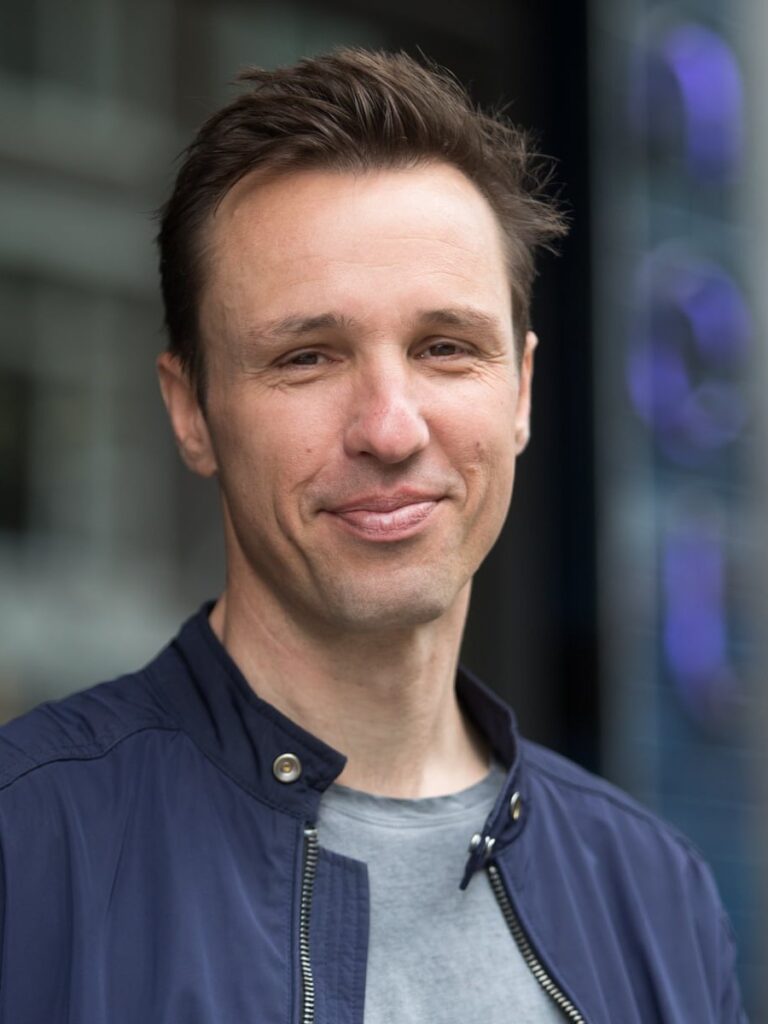To have a hobby means to love doing something. Have you ever felt like having a hobby that is uncommon or unheard of for most people? If so, let me introduce you to the alums of English Letters of Sanata Dharma University batch 2020. His name is Yohanes David Kurniawan, or you can call him Jojo, and he has a hobby of playing a rhythm game titled Pump It Up.
Pump It Up is a rhythm game that requires your feet to play. The idea is like any rhythm game: you have icons that suit the beat of the music, and to press those icons, you step on the buttons accordingly. Pump It Up itself is very famous among rhythm game players. However, it may be unfamiliar to some people.
The first time he played this game was when he and his friends had just finished the national test for high school, but later on, he got addicted and started to play it more often. “When I started college, I could play five times a week.” Kak Jojo said, showing his range of playtime. While playing, he also met a lot of people who were in the Pump It Up community, and that got him more involved.
Being good at the game also needs practice and tremendous determination. To be where he is right now, playing at a high level, also comes with a background story. With the community and friends he made while playing the game, he also got challenges from his friends, such as playing the same song repeatedly until he got an S grade in that particular song, and so on. This experience builds his mentality to be hardworking and determined.

That’s one benefit of playing the game, but not the only benefit. Kak Jojo stated, “I have always been lazy to work, so playing this game helps me build my physical abilities.” He plays on a high level, and doing it trains your stamina because of how fast the note is, it almost feels like you ran for miles. To add to that statement, he also flexes that when he’s an actor for USD’s English Letters annual musical event EL the musical, he has the second-best stamina record. Side information about EL the musical is a musical performance held yearly by the students of the English Letters Department at Sanata Dharma University.
Yes, he always loved music, so he joined as an actor in 2018 for a piece titled Mamma Mia! He also joined the English Letters Music Organization, so with his experience playing Pump It Up, counting beats was his forte. Playing Pump It Up has a lot of benefits that we might not realize today, but it might come in handy later on in our lives.
Not forgetting about all the benefits above, the significant benefit is that enjoying yourself makes those other benefits come through. “There’s a lot of memories like when we played co-op together, and we might have fallen while doing it, and I missed it when those times died down.” Fun times like this are what make the process enjoyable because you get to meet a lot of new friends, connecting you with people who have the same passion for playing the game.
In conclusion, we all have something that we enjoy doing, and that thing might be underestimated by other people, but as long as we love doing it, who cares? A closing statement from Kak Jojo: “No matter how weird your hobby is, if you enjoy doing it, then go for it.”
Journalist: Gregorius Beryl Satya Shira
Editor: Sitti Aminah Intan Utami, Vonna Meisya Saputra (QC)


 Pic: Markus Zusak by Carly Earl, 2018. The Guardian
Pic: Markus Zusak by Carly Earl, 2018. The Guardian

